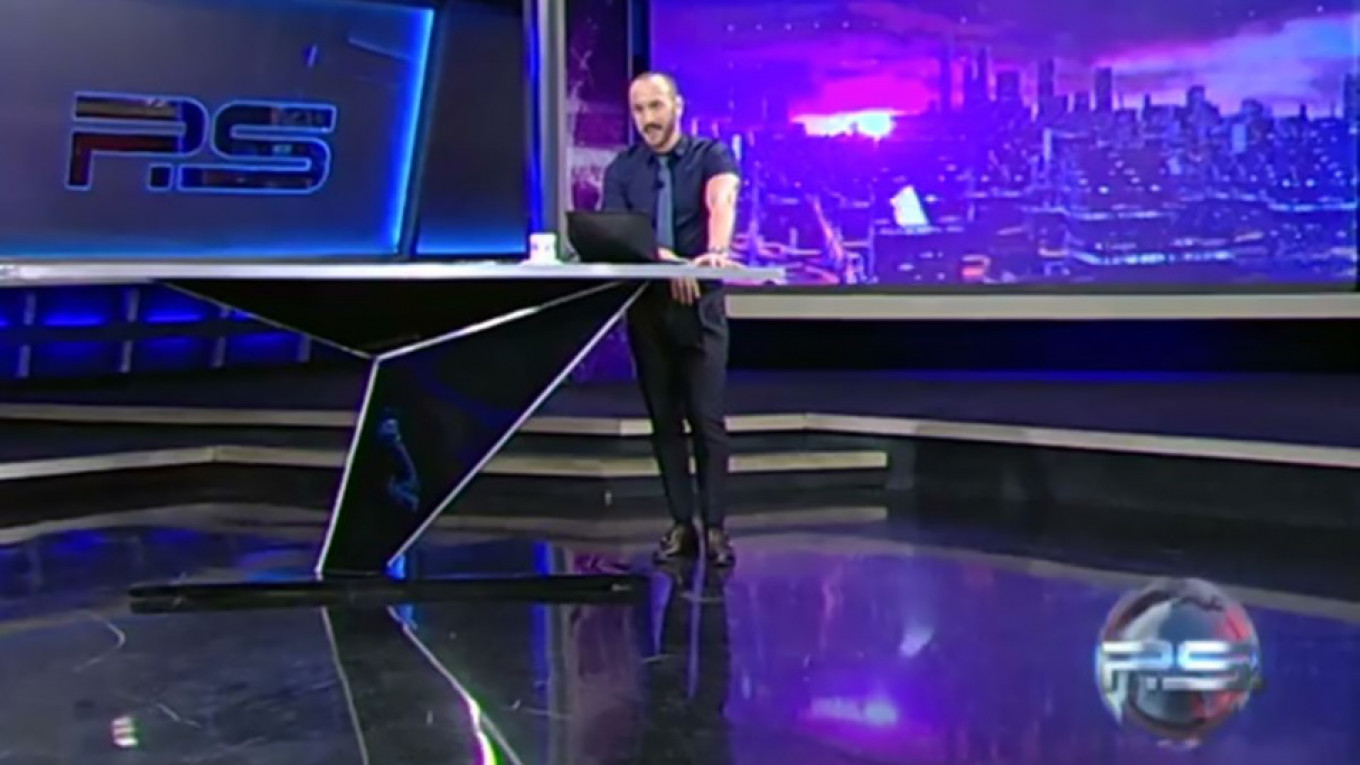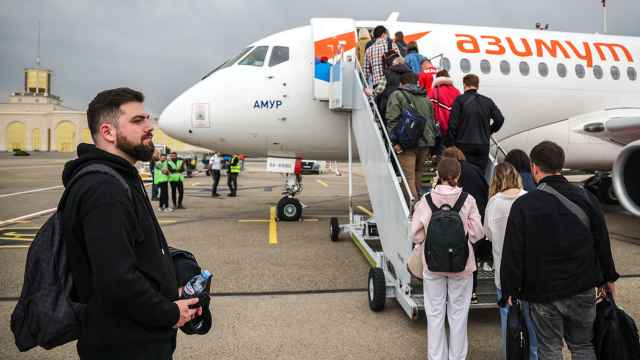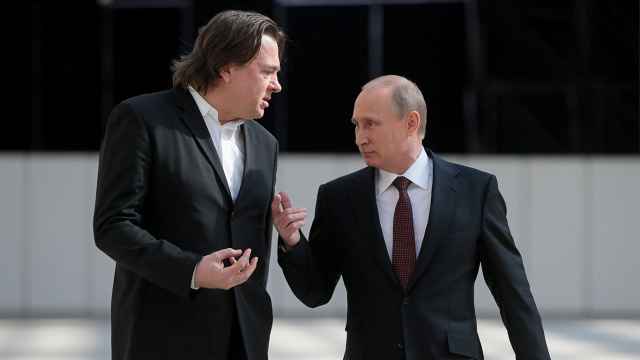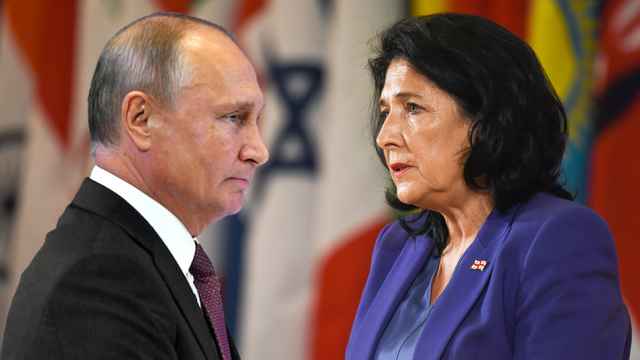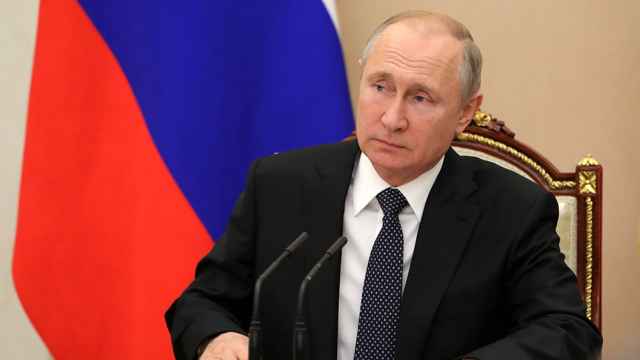A Georgian television host has stirred controversy with profanity-laden remarks against Russian President Vladimir Putin live on air, prompting protests and leading the channel to suspend broadcasting.
The controversy occurred amid weeks of violent protests in the former Soviet republic following a visit by a Russian lawmaker. The protests quickly devolved into a double crisis, pitting Moscow against Tbilisi and the protesters in Georgia against their own government.
Giorgi Gabunia opened his Sunday evening program on Georgia’s independent Rustavi 2 television station with a minute of graphic vulgarity directed at Putin and his deceased mother.
Speaking in Russian, Gabunia also called Russian people slaves and told them to get out of Georgia.
Georgians gathered outside the Rustavi 2 office later that night to demonstrate against Gabunia’s comments. The channel went off the air on Monday morning over safety concerns.
Georgian officials, including President Salome Zurabishvili, condemned Gabunia’s actions as a provocation against the country’s interests.
Russia’s Foreign Ministry called the “verbal attack” on Putin “unacceptable” and said it was an attempt to undermine Georgian-Russian relations. Kremlin spokesman Dmitry Peskov told reporters that the Georgian authorities were failing to pacify radical anti-Russian forces and the incident was a disgrace for the Georgian people.
The channel later apologized and the television station resumed broadcasts on Monday morning.
The new controversy ignited as Russia suspended flights to Georgia starting Monday and said it would tighten controls on Georgian wine imports.
Reuters contributed reporting to this article.
A Message from The Moscow Times:
Dear readers,
We are facing unprecedented challenges. Russia's Prosecutor General's Office has designated The Moscow Times as an "undesirable" organization, criminalizing our work and putting our staff at risk of prosecution. This follows our earlier unjust labeling as a "foreign agent."
These actions are direct attempts to silence independent journalism in Russia. The authorities claim our work "discredits the decisions of the Russian leadership." We see things differently: we strive to provide accurate, unbiased reporting on Russia.
We, the journalists of The Moscow Times, refuse to be silenced. But to continue our work, we need your help.
Your support, no matter how small, makes a world of difference. If you can, please support us monthly starting from just $2. It's quick to set up, and every contribution makes a significant impact.
By supporting The Moscow Times, you're defending open, independent journalism in the face of repression. Thank you for standing with us.
Remind me later.


